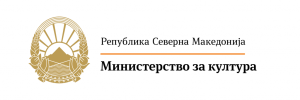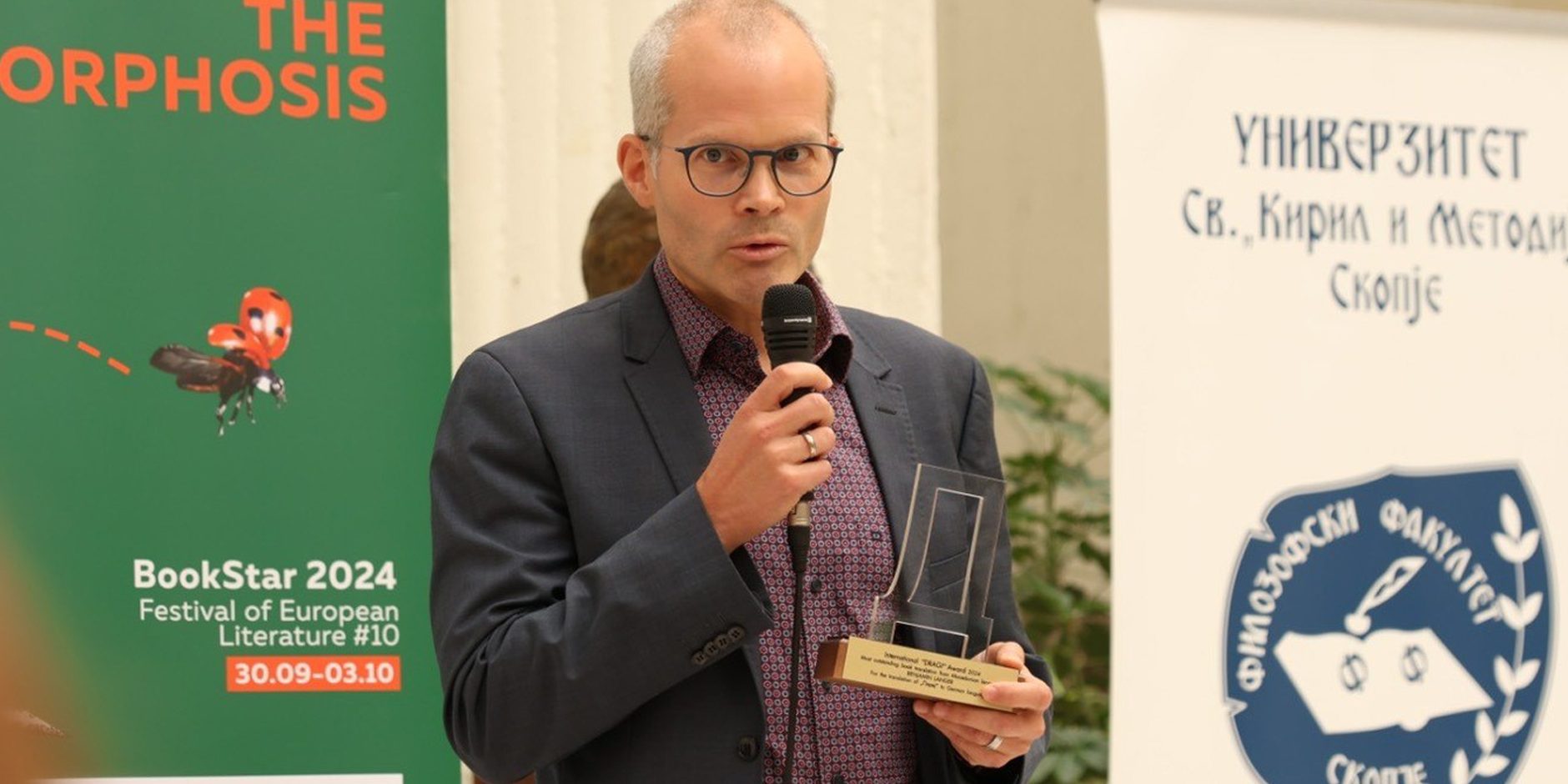Respected colleagues, dear Ambassador, respected Dean of the Faculty of Philology “Blaže Koneski“ in Skopje.
I am very glad to be here today, and it is a great, great honor. As already mentioned, we are at the Faculty of Philology, the place where I receive this award, and that makes me especialy pleased.
Nineteen years ago, I arrived in Skopje as a young lecturer in German language, I taught for four years, and, exactly on this stage, I performed with my theater group. With the students, we formed the group "Alles Zusammen" or "All together" and played several shows right here. It was a very nice time. Right here, in the library of the Department of German Studies, I also started translating within the student workshops. Here I got acquainted with what translation means, and how interesting this work is - how many challenges and joys it brings.
When it comes to "Pirej", professor Zorica Nikolovska already mentioned, that it is a huge challenge to translate such a book. Fortunately, the biggest challenge in such cases, finding a publisher in Germany was not a problem this time. I immediately found Sebastian Guggolz, he liked the book very much, and at the very beginning he said: "The author is deceased, there is no problem for me. The profile of the publishing house is adequate to this story, the story from a village, from Macedonia. The book is very interesting, let's publish it." So, it was not a challenge, but emotional challenges followed. For example, I remember when I was in my office translating the part when Velika's last children die, my children were small. As a translator, you kind of get into the characters, so I cried while translating. It was a big challenge.
About the lexis: the book's vocabulary is heavy. Here I was very lucky to be in the center of Macedonian literature, so I asked the authors. It is a great joy, by the way, in my work, to know the authors, to spend time together, at book fairs, in Berlin for example, with Rumena Bužarovska who is here, with Vladimir Jankovski in Leipzig we had a nice friendship, with Vladimir Martinovski we even sang folk songs in a pub in the Czech Republic. All that leaves good memories. Peter M. Andreevski, unfortunately, I could not ask him personally what he meant, but there was his son, Sergej Andreevski, his wife Irena, and the grandson of Petre M. Andreevski, Meglen, who lives in Germany. I also consulted them. Most of the time they could help me, but if they didn't know what one of his words meant, they made notes, went to the village, asked the old people there what this meant, what that meant, and then sent me the lists with pictures: that's this object, that's what it's used for. After that, I just found their names in German. So, it was a very interesting and a quite collective thing. And not only them, but also other friends helped. A friend went to the national museum in Skopje to find out about looms and the parts of which it is composed, what exactly it is for, how it works. I had a lot of support. In fact, the translation was a collective effort, and I think this award is not only mine, but also their award. It is also a reward for my wife, who is always the one who listens to the translation first: I read aloud, both for myself and for my wife, I am a Macedonian son-in-law, so the work is very interesting.
It is a joy to translate from the Macedonian language, to have such support, to have so many conversations about forms, about traditions, about everything, and I am very grateful for that.
I am very grateful for the constant support, and not only from the Macedonian side, but also from the German side. Traduki, the German Embassy, all that means a lot to me.
Thank you all very much, I am very glad to be here.
I am very grateful for the award!









